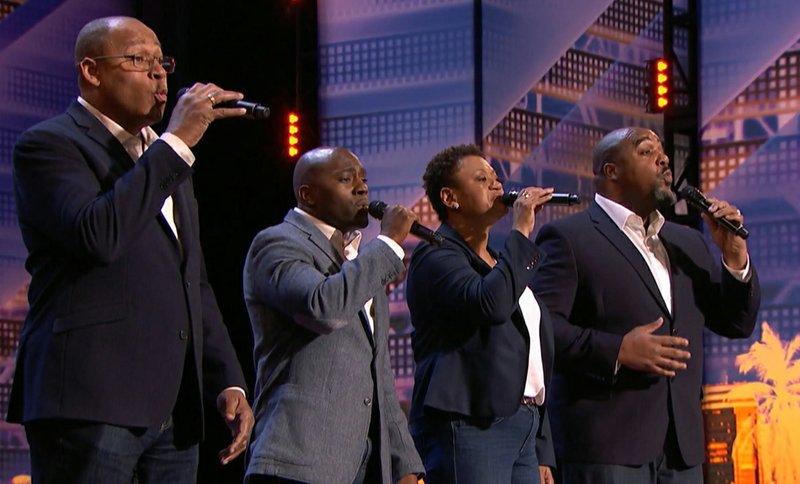This season of America's Got Talent has featured a rat that can navigate a New York cityscape, 76 Texas high-school students who kick as high as an oil derrick and a couple who throw knives at each other while singing opera.
But the most impressive feat for NBC's amateur competition series has little to do with the performers: it's that 10 million people regularly watch it.
America’s Got Talent
7 p.m. Tuesdays
NBC
Broadcast ratings tend to plummet in summer as fewer Americans stay home to watch TV. CBS' much-hyped Love Island, starring beautiful strangers engaged in romantic melodrama, never managed to reach three million viewers for any episode this summer.
Yet Talent flies in the face of much of what experts know about the modern television business. Adding to the achievement, much of the audience is in the coveted 18-49 demographic and clicks on YouTube performances in massive numbers.
If you're not familiar, America's Got Talent is a vintage talent show done up with American Idol-style judging. It involves a host of acts — magic, singing, dancing, comedy — that compete in various rounds, with the goal of advancing to the live-show episodes in August and September. The winner nabs $1 million (albeit paid over a whopping 40 years) and performs at a variety show in Las Vegas.
The show was created by Simon Cowell, who launched a Got Talent franchise that would originate on the U.S. airwaves and be exported to dozens of countries. The show began as an also-ran of sorts on NBC in 2006, with a judging panel that included Piers Morgan and David Hasselhoff. But Talent's first-ever episode nabbed 12 million viewers. Its bona fides were quickly established.
One of the keys to the success of Talent, executives say, has been its popularity across demographics.
"It's the rare show that provides a co-viewing experience — my kids, who are 6, 4 and 2, watch it, my husband enjoys it, my parents enjoy it," said Jenny Groom, executive vice president of alternate programming and development at NBC. "There's a plethora of content nowadays that can divide people. Someone watches on their iPad, and someone is watching television, and someone else is watching on their laptop. This show brings a whole family together."
To achieve its unifying effect, producers scour the country for talent. They often take months on the road to find new acts.
"The goal is to find a new crop every year, to find things people haven't seen before," said Sam Donnelly, who executive produces the show with Jason Raff.
"When we're traveling to Chicago or Cleveland we don't know what we'll find," Raff said. "Many times it's mediocre or boring."
"Or weird," Donnelly said.
"And then occasionally someone comes into an audition room and dazzles us," Raff said.
There is something deeply old-fashioned about Talent. With its focus on everyday Americans and their brand of wacky earnestness, it evokes every high-school talent show ever created and the vaudeville world that gave rise to them.
But there's also a decidedly of-the-moment quality to the series. Each act is custom-rigged to stand on its own. No set-piece is given room to breathe beyond a few minutes.
"It's the way people consume today, with all our limited attention spans," Mandel said. "It's 'if you don't like something, hang in there 90 seconds and something new will come along.'"
How much longer NBC can keep this up, though, remains a question.
In this decade, a period of great turbulence for network television, Talent has averaged between 10 million and 11 million viewers in half its seasons and never gone above 12 million or dipped below 9 million average viewers. By contrast, The Voice, another NBC competition hit, has lost nearly half its audience this decade, going from an average of nearly 16 million viewers when it first debuted in the early 2010s to just 8.7 million this season.
But even hit reality shows tend to degrade as they move through their second decade — American Idol began sliding off a ratings cliff after its 11th and 12th seasons.
Talent also has a more specific obstacle — it must keep one-upping itself in novelty. And most importantly, it has no control over the people who it must rely on to do that.
The future success, in other words, depends on just how increasingly audacious Americans are willing to get.
"That is the thing that keeps Sam and [me] up every single night, to be honest," Raff said. "It gets harder and harder every year."
Style on 08/27/2019
